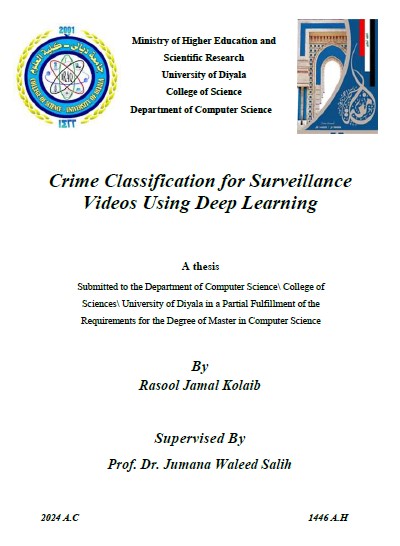Abstract
In modern communities, lots of offenders are prone to recidivism, hence, there is a requirement to inhibit such criminals, especially from impending socioeconomically disadvantaged and high-crime areas that experience elevated levels of criminal activity, involving drug-related offenses, violence, theft, and other forms of anti-social behavior. Consequently, surveillance cameras have been installed in relevant institutions, and further personnel have been provided to monitor videos using various surveillance apparatus. However, relying solely on monitoring with the naked eye and manual video processing falls short of accurately evaluating the footage acquired via such cameras. To handle the issues of conventional systems, there is a need for a system able to actively classify acquired images while also supporting surveillance personnel.
Therefore, in this thesis, a deep-learning approach is developed to build a crime detection system capable of finding crime activities from surveillance video frames. The proposed crime activity detection system encompasses several main phases; dataset preparation and pre-processing, splitting pre-processed crime activity images into test and train sets, and implementing the proposed deep learning approach. Besides the proposed CNN approach, two deep-learning approaches (EfficientNet-B7, and MobileNet-V2) are trained and assessed on the University of Central Florida (UCF) Crime and District of Columbia Metropolitan Police Department’s Sexual Assault Supplementary (DCSASS) datasets.
The experiments uncover that the proposed CNN approach achieved outstanding results and outscored the other deep-learning approaches and relevant state-of-the-art with an accuracy of 99.48%, precision of 99.47%, sensitivity of 99.41%, and F1 score of 99.44% for UCF Crime, and an accuracy of 89%, precision of 89%, sensitivity of 88%, and F1 score of 88% for DCSASS datasets.





